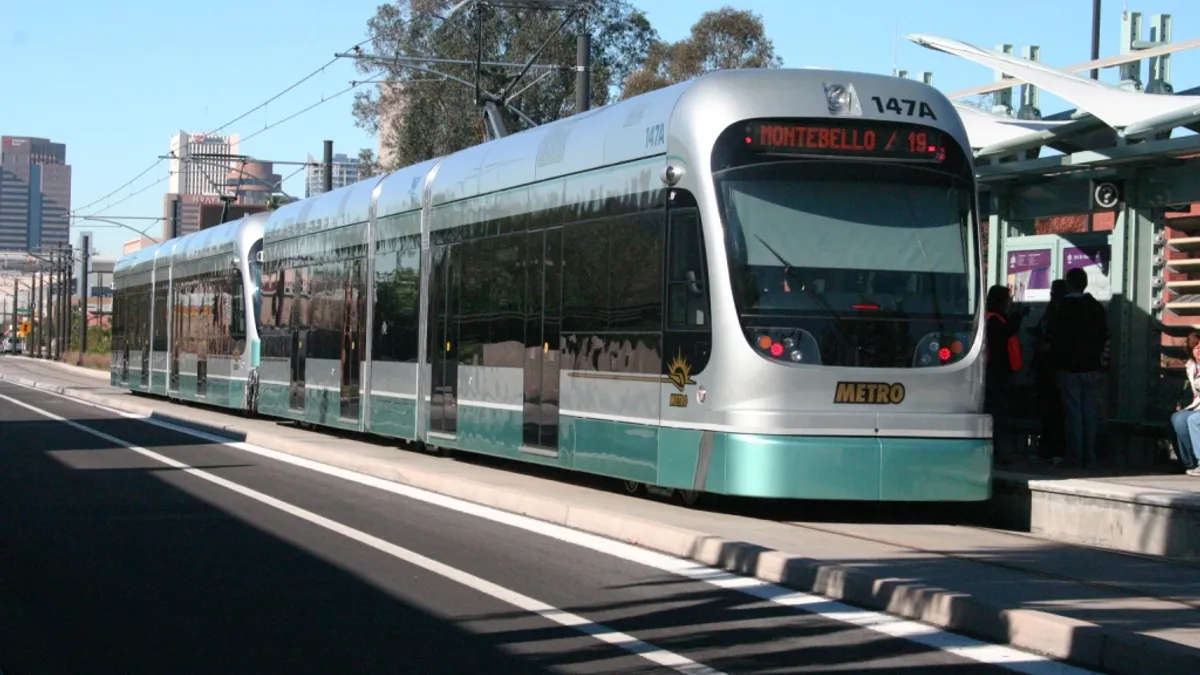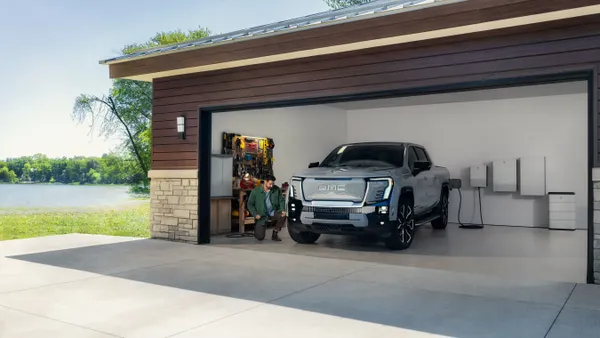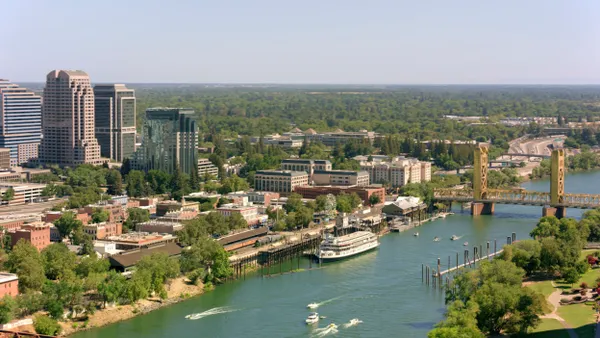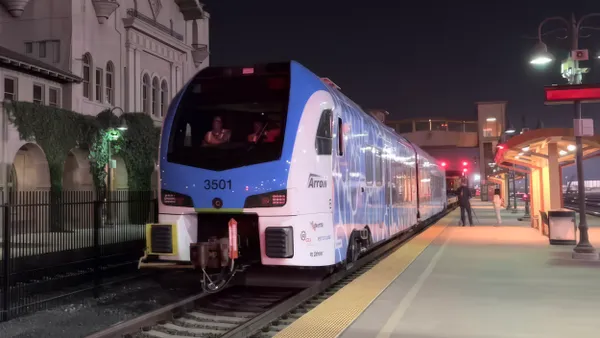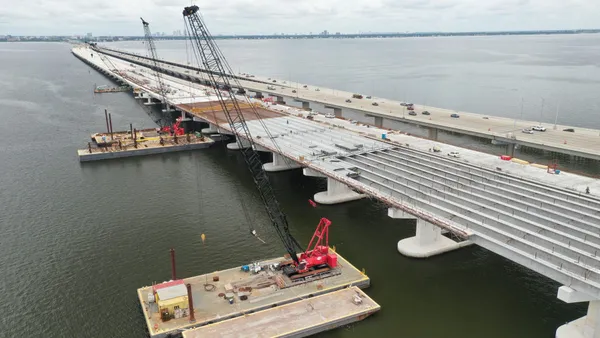Dive Brief:
- Phoenix voters rejected a plan that aimed to stop further development of the city's light rail system in a special election on Tuesday. Proposition 105 was defeated with 62.33% of the vote (112,056 votes), with 37.67% (67,735) voting in favor, according to provisional results. Around 15,000 early ballots still need to be counted.
- The Proposition asked voters if they wanted to stop expansion of the city's Valley Metro system into communities in the south, and other subsequent extensions, and instead invest in infrastructure improvements for cars. Phoenix Mayor Kate Gallego said the defeat of that Proposition — as well as another that aimed to limit the city’s spending until it cut its pension debt — was a positive step forward.
Residents broke records when they showed up in mass & declared they want robust transportation options & investment in our parks, libraries, & city services. Light rail expansion is not stopping--not today, not tomorrow.
— Mayor Kate Gallego (@MayorGallego) August 28, 2019
- The Proposition had received the backing of many business owners along the planned extension route in south Phoenix, as well as City Council members Sal DiCiccio and Jim Waring. It also received heavy support from Building a Better Phoenix, which transit proponents allege received heavy backing from the Koch brothers. On Twitter, DiCiccio said he was "disappointed" in the results.
Dive Insight:
While the defeated groups appear not to have conceded yet, public transit advocates said this represents a major victory in their efforts to give city dwellers more mobility options.
Paul Skoutelas, president and CEO of the American Public Transportation Association (APTA), said in a statement that residents "voted to ensure that their light rail system can expand to better serve the transit needs of a rapidly growing city looking to the future. Phoenix made it resoundingly clear to the naysayers that light rail is essential to their economy and their community."
The push for more transit options takes on renewed urgency given how much the Phoenix area is expected to warm in the coming years due to climate change. As with many cities, the transportation sector is one of the worst offenders when it comes to carbon emissions, so finding ways to get cars off the road could help make the city more environmentally friendly.
Like other major cities, Phoenix is expected to experience a major warming in the coming years if climate action isn't taken. According to a map produced by CarbonBrief, the city is expected to warm between 1.9 and 5.8 degrees Celsius by 2100.
Further investment in transit should help connect other parts of the city to job opportunities. The Associated Press noted that the areas of south Phoenix in line for a light rail extension are in working-class majority-minority neighborhoods, while further expansions could link to the Arizona State Capitol and suburbs in the far west, which would provide another commuting connection to jobs and education. Indeed, reports from APTA and Chicago's Metropolitan Planning Commission found that more transit investment helps attract and retain jobs.
Funding for light rail extensions remains a headache, especially with the federal government accused of slow-walking grant awards, with opponents seizing on the fact that Valley Metro has an estimated weekly ridership of nearly 48,000.
But voting for transit improvements appears to be gaining popularity at the ballot box, albeit after a stinging defeat for a major transportation revamp in Nashville, TN last year that left city leaders scratching their heads and seeking a new way forward. Gallego now has further impetus to do what she pledged in an interview with Smart Cities Dive last year before her election, and "push what kind of city Phoenix will become."



